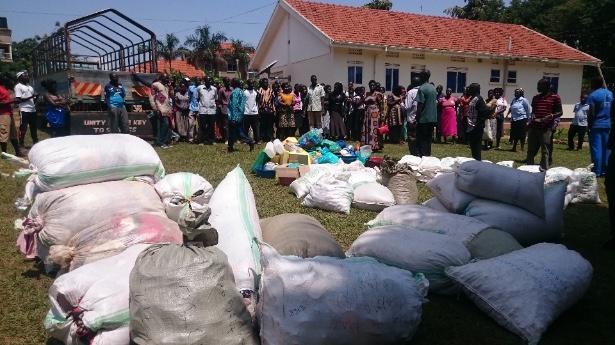Ugandan Farmers Emerge Victorious After Monthlong Occupation Of UN Office
After 37 days of occupying a United Nations office in Gulu, Uganda, 234 farmers, youth, mothers with young babies and elderly men packed their gear into trucks and returned to their homes in Apaa — an area of rich farmland and forest in the north of the country. Far from being a quiet and somber event, their departure was marked by an explosion of song and ululation. It was part collective exhale — following a month of cramped conditions, an overflowing pit latrine and daily hostilities from their reluctant “hosts” — and part cry of triumph and hope. The occupiers from Apaa had uprooted themselves and thrust their community upon the only global stage accessible to them. They strategically chose the only office in the entire country that could be occupied without immediate forceful eviction.





